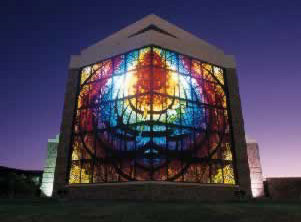 Across the country, on secular campuses as varied as Colgate University, the University of Wisconsin and the University of California, Berkeley, chaplains, professors and administrators say students are drawn to religion and spirituality with more fervor than at any time they can remember.
Across the country, on secular campuses as varied as Colgate University, the University of Wisconsin and the University of California, Berkeley, chaplains, professors and administrators say students are drawn to religion and spirituality with more fervor than at any time they can remember.
More students are enrolling in religion courses, even majoring in religion; more are living in dormitories or houses where matters of faith and spirituality are a part of daily conversation; and discussion groups are being created for students to grapple with questions like what happens after death, dozens of university officials said in interviews.
A survey on the spiritual lives of college students, the first of its kind, showed in 2004 that more than two-thirds of 112,000 freshmen surveyed said they prayed, and that almost 80 percent believed in God. Nearly half of the freshmen said they were seeking opportunities to grow spiritually, according to the survey by the Higher Education Research Institute at the University of California, Los Angeles.
Compared with 10 or 15 years ago, “there is a greater interest in religion on campus, both intellectually and spiritually,†said Charles L. Cohen, a professor of history and religious studies at the University of Wisconsin, Madison, who for a number of years ran an interdisciplinary major in religious studies. The program was created seven years ago and has 70 to 75 majors each year.
University officials explained the surge of interest in religion as partly a result of the rise of the religious right in politics, which they said has made questions of faith more talked about generally. In addition, they said, the attacks of Sept. 11 underscored for many the influence of religion on world affairs. And an influx of evangelical students at secular universities, along with an increasing number of international students, means students arrive with a broader array of religious experiences.